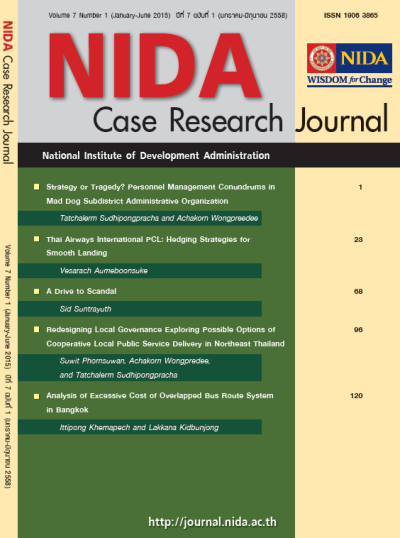THAI AIRWAYS INTERNATIONAL PCL: HEDGING STRATEGIES FOR SMOOTH LANDING
Keywords:
Airline Industry, Thai Airways, Risk Management, Hedging StrategyAbstract
On October 17, 2013, in the aftermath of the 3Q2013 Board Meeting of Thai Airways International Public Company Limited (“THAI”), Ms. Parn (hypothetical name), Financial Risk Manager, was asked by the THAI President, Dr. Sorajak Kasemsuvan, to prepare a financial risk management plan with which to fulfill the commitments that the President had made to the board of directors at the same meeting. The meeting had been a contentious one, with the chairman and board of directors having expressed much dissatisfaction with the report on the Company’s performance and the President’s performance during the first three quarter of the year 2013. They had been insistent in their call for prompt action by the President and management team to improve the airline’s performance.
In response to the board meeting, the President had stated that he was going to call for the internal meeting with the management team and discuss strategies to improve the airline’s performance. At the internal meeting, the President and the management team had analyzed that the losses resulted from the high competition in the airlines business, the global economic slowdown, the fuel price fluctuation, and the volatility of foreign currencies that were the sources of income and expenses of THAI.
By the end of the meeting, the President and management team had developed the strategies on various aspects to deal with such problems -- for example, to create advertisement and marketing campaign in order to be competitive in the airlines business, to reorganize the airlines routes in order to operate in the profitable environments, and to manage financial risk particularly fuel price risk and foreign exchange rate risk in order to protect the company’s profits from the external factors and maintain financial health of the airline. In this latter connection, the President had assigned Ms. Parn to be responsible for conducting the financial risk management plan, including management of fuel price fluctuation in order to stabilize the company’s fuel expense.




